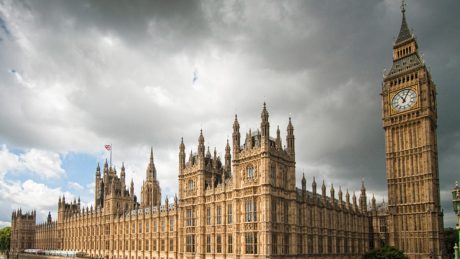The latest climate change litigation case to hit the UK courts saw activist groups successfully challenge the government’s net zero strategy (“NZS”).
In this article, Matt Caples and Elaina Bailes discuss what the judgment in Friends of the Earth Limited and Others v Secretary of State for Business, Energy and Industrial Strategy means for businesses reviewing their net zero strategies.
The claim
Friends of the Earth Limited, ClientEarth, and the Good Law Project and Joanna Wheatley (the “Applicants”) brought an application to have decisions made by the Secretary of State for Business, Energy and Industrial Strategy (the “Secretary of State”) relating to duties imposed by the Climate Change Act 2008 (the “CCA”) judicially reviewed.
The court scrutinised decisions made by the Secretary of State on 17 October 2021 (a) to approve proposals and policies in respect of the government’s NZS and (b) to publish the NZS as a report under the CCA.
The CCA:
- Required the creation of the Climate Change Committee (“CCC”): an independent body to advise the government and Secretary of State on matters relating to emissions targets and related reporting.
- Imposes a duty on the Secretary of State “to prepare proposals and policies for meeting carbon budgets” (s13).
- Imposes a duty on the Secretary of State “to report on proposals and policies for meeting carbon budgets” (s14).
The significance of the NZS and the Secretary of State’s decisions in relation to it flow directly from the CCC’s recommendation on 9 December 2020 that the UK accelerate emissions reductions by bringing forward the emissions target for 2050 to 2033-2037. Otherwise, the NZS would not achieve net zero emissions by 2050.
The decision
Mrs Justice Holgate began her judgment with the simple statement: “Climate change is a global problem”. She went on to hold the government to account for its failings by finding that the Applicants’ challenge succeeded, albeit to a limited extent.
The judge found that the briefing provided to the Secretary of State was legally insufficient for the purposes of s13(1) of the CCA. It followed as a matter of law that the NZS did not comply with the duty to report under s14. Those insufficiencies came from certain key omissions identified by the judge.
However, of more interest to commercial parties is the Applicants’ unsuccessful arguments relating to the duty on the Secretary of State in s13(1) of the CCA to present “proposals and policies” that would enable carbon budgets to be met.
The Applicants argued that for the Secretary of State to satisfy its duty to ensure the proposals and policies put forward would enable carbon budgets to be met, their numerical projections for policies that had a quantifiable effect would have to enable at least 100% of the reductions required to meet the target.
In effect, the Applicants were posing the question: how can proposals or policies that everyone considers will enable less than 100% (in this case, only 95%) of a target to be met be said to enable that target to be met?
The court disagreed with the Applicants, concluding that there was no requirement for the Secretary of State to be satisfied that its estimate of emissions reductions from quantifiable policies would enable 100% of the target to be met. There are unquantifiable effects of the policies in question that allow for a qualitative judgment on their effects. That qualitative judgment can also inform the Secretary of State’s decision as to whether policies will enable a target to be met.
Mrs Justice Holgate said: “The simple fact that the outcomes of modelling are expressed in numerical terms cannot disguise the dependence of such analysis on the use of judgment.”
The Applicants expressed concern about the effect of this approach. It would allow for decisions as to the efficacy of a policy in meeting an emissions target to fall below 95% and still allow the Secretary of State to say it considers that the policy enables the emissions target to be met. The question then is what is the bottom line for that quantifiable efficacy?
Mrs Justice Holgate defended her approach and disagreed that the Applicants’ concerns would be borne out. This approach undeniably gives the Secretary of State a margin of error when considering whether a policy enables a target to be met, and possibly one greater than many might expect.
Takeaways for ESG (environmental, social, and governance) policymakers
While this case concerns a judicial review, similar questions regarding the duties of private sector ESG policymakers may be asked of a judge in a commercial context.
The success of the Applicants in showing the briefing of the Secretary of State was insufficient should act as a warning to boards. To discharge their fiduciary duties, they must ensure the information they receive when making decisions regarding ESG policy is sufficiently detailed and evidence-backed.
However, arguably the approach by the judge in the present case could allow companies to set out policies and strategies to achieve net zero that they know from numerical modelling will not enable 100% of an emissions target to be achieved. As more companies commit to net zero policies and publicly claim to have strategies that will meet their target, the efficacy of those strategies will be scrutinised. When they are scrutinised, there will undoubtedly be some who assert that strategies said to achieve these targets simply do not or will not. This creates a prospective liability for companies stemming from related misstatements as to whether they are meeting emissions targets, including net zero targets.
If, when faced with these allegations, a company is allowed this margin of error afforded by the use of qualitative judgment in respect of unquantifiable factors, this ought to improve the prospects of defence against such allegations. Similarly, in a greenwashing claim relating to misstatements regarding net zero strategies, is it misleading for a company to say a policy that meets 95% of targets achieves net zero?
Companies could attempt to rely on unquantifiable factors such as yet-to-be-made technological developments or changes in public behaviour. In their qualitative judgment, this would make up whatever shortfall they have seen from their numerical modelling.
It is encouraging that the court is so willing to hold people to account for their climate duties that it has found the government lacking in this instance. However, allowing a significant margin of error in predicting the consequences of climate policies might, in the long run, be detrimental to the goal of improving compliance with climate goals.
You can find further information regarding our expertise, experience and team on our Commercial Litigation pages.
If you require assistance from our team, please contact us or alternatively request a call back from one of our lawyers by submitting this form.
Subscribe – In order to receive our news straight to your inbox, subscribe here. Our newsletters are sent no more than once a month.




